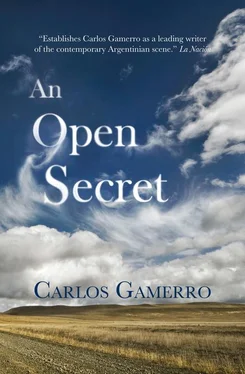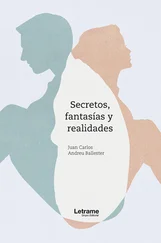It’s noon, and first the Banco Provincia then the Banco Nación close their doors to the public until the following Monday. An hour later the public offices will do the same; only the post office and the telephone exchange will reopen after siesta. This is the time when the relay stations in Rosario start broadcasting, and in the kitchens of those who have lunch at home television screens flicker into life to accompany the meal with their grey silhouettes and almost articulate static crackle. It’s still two years before colour TV and ten before the arrival of cable will lend some meaning — other than ostentation — to owning one. At other houses husbands and fathers park outside the door and get out to change, while the family loads up the car and youngsters riot in the back seat. After tactical stops at the butcher’s and the baker’s, they will join the swollen caravan of cars and even trucks from every town in this and neighbouring counties which converges on the causeway and advances single-file towards the lagoon’s two beach resorts. At 1.15 pm, when the Los Ranqueles coach bound for Rosario goes past, it will be fifteen minutes since the DRMCO grader paving the Belgrano Street section between Revoredo and Martínez has stopped work; its two operators take a break from the double reflection of sun and hot tar under the insubstantial shade of the olive trees that line the as yet non-existent commercial high school. Little by little the early din of Malihuel’s day dies away, except on the island in the lagoon, where the smoke of dozens of barbecues and the cries of children playing in the water or at Carnival amidst tables and cars rises heavenwards. In the dining room of the Lagoon Hotel most of the waiters wait patiently by the counter; only at night will things liven up.
By three in the afternoon it’s as if a flash plague had done away with all the inhabitants. The last bus from Central Alcorta bound for Toro Mocho has just passed through without stopping, and the streets are devoid of people and vehicles. They’re filled entirely by the sun, the heat and the thunderous singing of the cicadas, the only movement that of a rhinoceros bug lurching over the red-hot sand. The shade, which has been retreating over the course of the day, now crouches at the foot of the trees and in the interiors of the houses, holed up behind closed shutters. All life and movement has retreated to them — in one, a standing fan swings from one side to the other, its breath strafing bodies sprawled on sheets, separated to prevent sweating at the points of contact; in another one, glued together from head to toe, grunting and groaning in chorus to the creaking of the bed; on a cool-tiled patio children play their silent siesta games among the potted plants; in a darkened kitchen the doñas who can’t sleep for the heat switch on the television in resignation and wait for the half-past soap.
An hour later the heat has hardly abated but, as if in answer to some secret call, the streets begin to stretch and yawn. The doors of the post office, the factory and the bar open, a megaphoned Fiat 600 begins to drive around the square, stridently announcing the night’s shows down at the lagoon, towards which a last batch of bathers head off to soak up what’s left of the sun; the TV drama over, the church bell begins to ring, calling the señoras to five-o’clock Mass and, refilled over and over at the tank in the square, the sprinkler starts roaming the dirt streets, damping down the dust with its open flower of water dodged by boys on bikes and dogs (the first sprinkling evaporating so fast that one inhabitant sitting on a wicker chair on the sidewalk outside her house watches the earth suck up all the moisture and dry before her eyes as if in fast-forward) and the whole town is flooded with the scent of wet earth, which mingles with the honeysuckle, spikenard and jasmine as the shadows lengthen. On the dot of seven the cinema opens its doors for the one-and-only showing on sunny days (a matinee and a late show are added when it rains), welcoming the trickle of cinema-goers who have been killing time in the ice-cream parlour next door, only one of whom — a young man in bermudas and multicoloured polo shirt, carrying a two-flavour tub — walks against the tide and disappears around the corner of the Banco Provincia. The last intercity coach of the day — the 7.2 °Chevallier to Rosario — goes past, and in the Council yard an employee uncouples the sprinkler tank from the tractor and couples up the tipper, Friday being trash day. A reddening sun closes in on the horizon and the singing of the cicadas has now given way to crickets and frogs; first one row of mercury lights, then another perpendicular to it, comes on in the two main streets, the axes of a grid immediately, if more faintly, completed by the light bulbs strung along the other streets and a few moving cars with their sidelights on. Outside their radius, on the closed highway, almost at the edge of the lagoon, a few young couples under cover of the shadows venture towards the Mochica, as does the occasional solitary kerb-crawler down by the tyre workshop to check out the highway whores. Out on the island the power plant shudders and jolts into life, and as it hums the filaments of hundreds of light bulbs glow, going in seconds from red to yellow to white until they disappear in the very light they generate. A bronze-torsoed bather in scarlet trunks steps into one of the cubicles dripping wet, emerges from it in bermudas and brightly coloured polo shirt, sits down at one of the low pine tables and orders a beer. A few families have already struck camp, fathers loading deckchairs into trunks, mothers washing dishes in brown water in concrete sinks, grandmothers towel in hand waiting for the kids to launch the last of their water bombs or take a last dip in the lagoon, while along the causeway the caravan forms of those who want to shower again and change for the nine-o’clock show. By then there’ll be clouds of moths and scarabs and other beetles around the spotlights that will turn the open-air stage into a living, crawling carpet beneath the feet of the artists who that night are Los Churrinches (a folk group from Salta), an unknown imitator from Buenos Aires — who, crippled or consumptive (opinions vary), will take the stage on crutches and perform on a chair — and last, before an audience, whose impatience borders on frenzy, no less than Sandro will take to the stage in a triumphant return to the town that gave him a standing ovation when he was a rising star and today has dressed up to fête him in the cradle of his fame and glory. Special buses arrive from Santa Fe and neighbouring provinces, and hoards of young girls with placards and posters ready to be unfurled at their idol’s imminent arrival anxiously scan the clouds gathering in the livid sky and pray for the rain to hold off until the concert’s over. It’s likely — only likely — that at this stage of the proceedings a young man in an impeccable cream suit with neatly slicked hair, appears in the hotel doorway, scans the gathered multitude with puzzled eyes and disappears again in the direction of the bar.
From this point on it’s impossible to say with any certainty what happens. The night may well be unique and so fall outside the scope of a description that, like this one, endeavours to keep to the merely habitual. The artists take the stage a little late, when the audience’s rhythmic clapping makes their presence unavoidable, Sandro keeps them waiting even longer and rumours about accidents on Route Eight or health problems gust around the sensitive surface of the crowd; Sandro does or does not arrive and the approaching storm does or does not drown out the girls squealing at the delirium of his show, and at eleven at night the waxing moon may no longer be seen behind the black thunderheads driven by the sudden wind across the sky. The Carnival dances go ahead regardless, the poshest in the function rooms of the hotel with the Boedo Dixie Orchestra, who can switch from a milonga to a foxtrot in the blink of an eye, and the dance for the youngest under the Yacht Club shed vibrating to the rhythms of the Los Machimbres quartet from Córdoba. The night owls end the day — technically now a new one — at Bermejo’s nightclub or queuing at the drive-in entrance to the Mochica or scattering to the neighbouring towns, and more than one ends up sleeping it off in a lay-by, where they eventually open their dazed and gluey eyes to the first light of day.
Читать дальше












